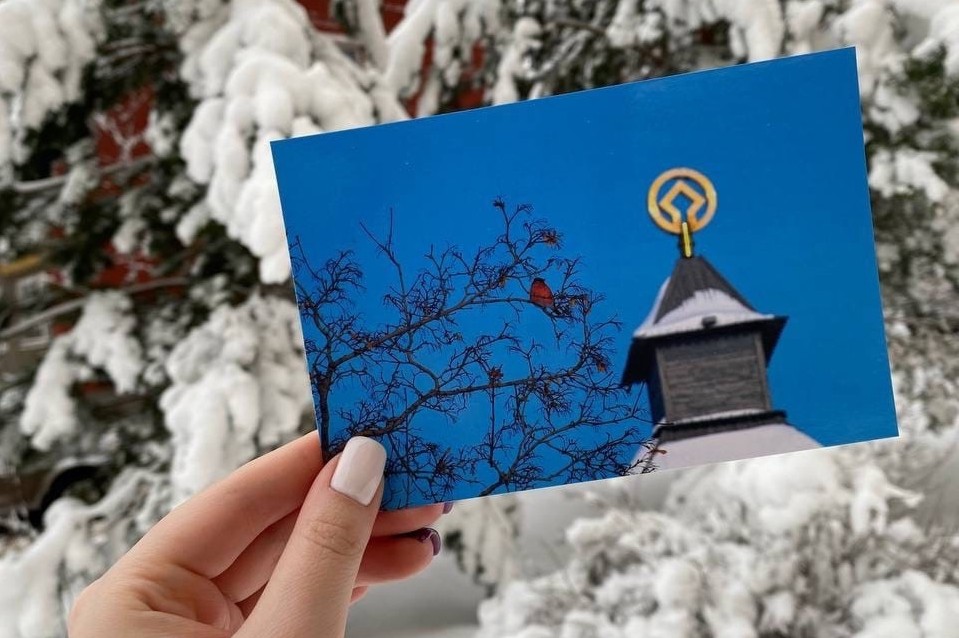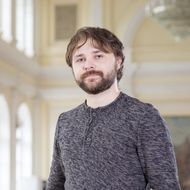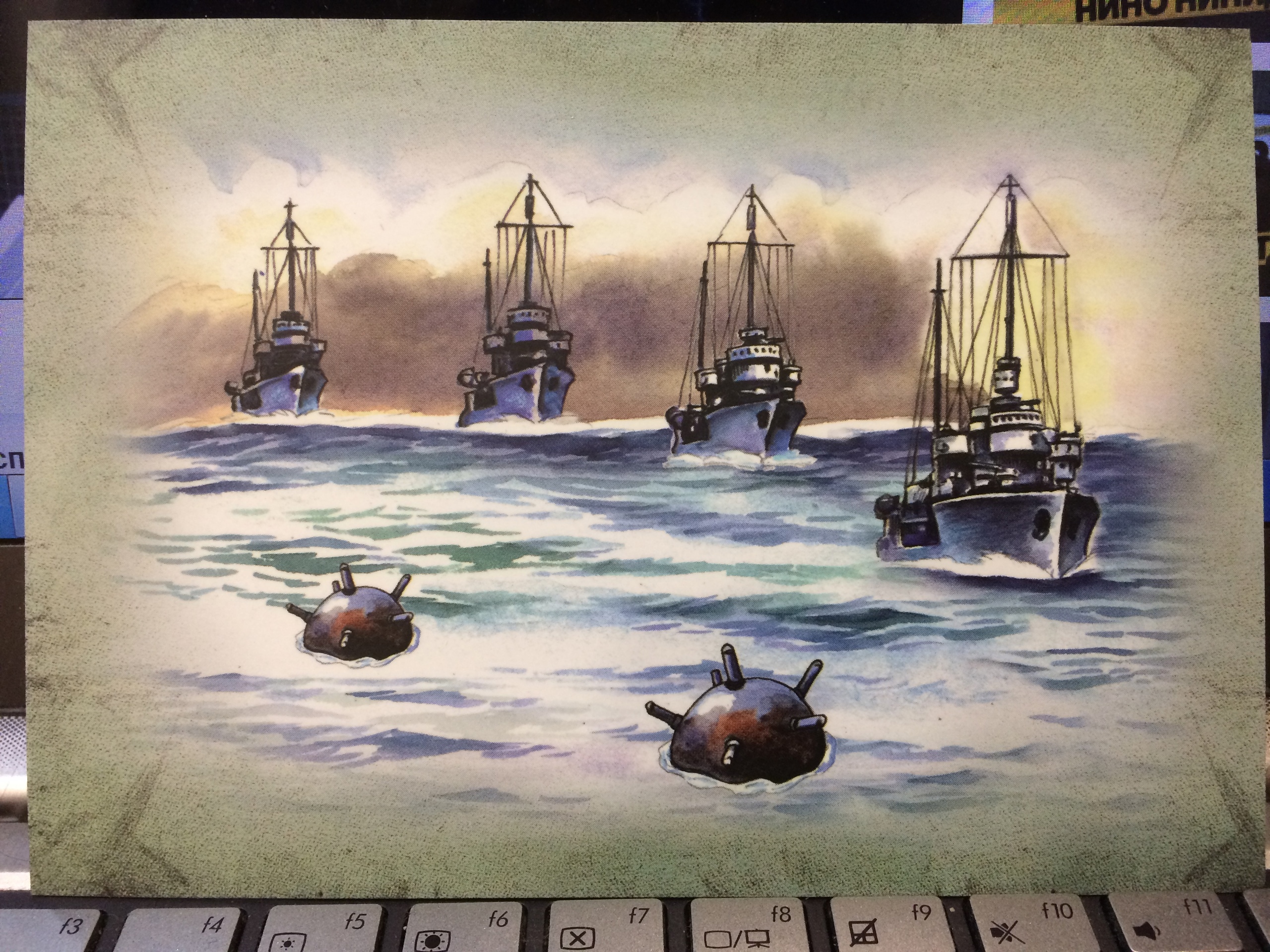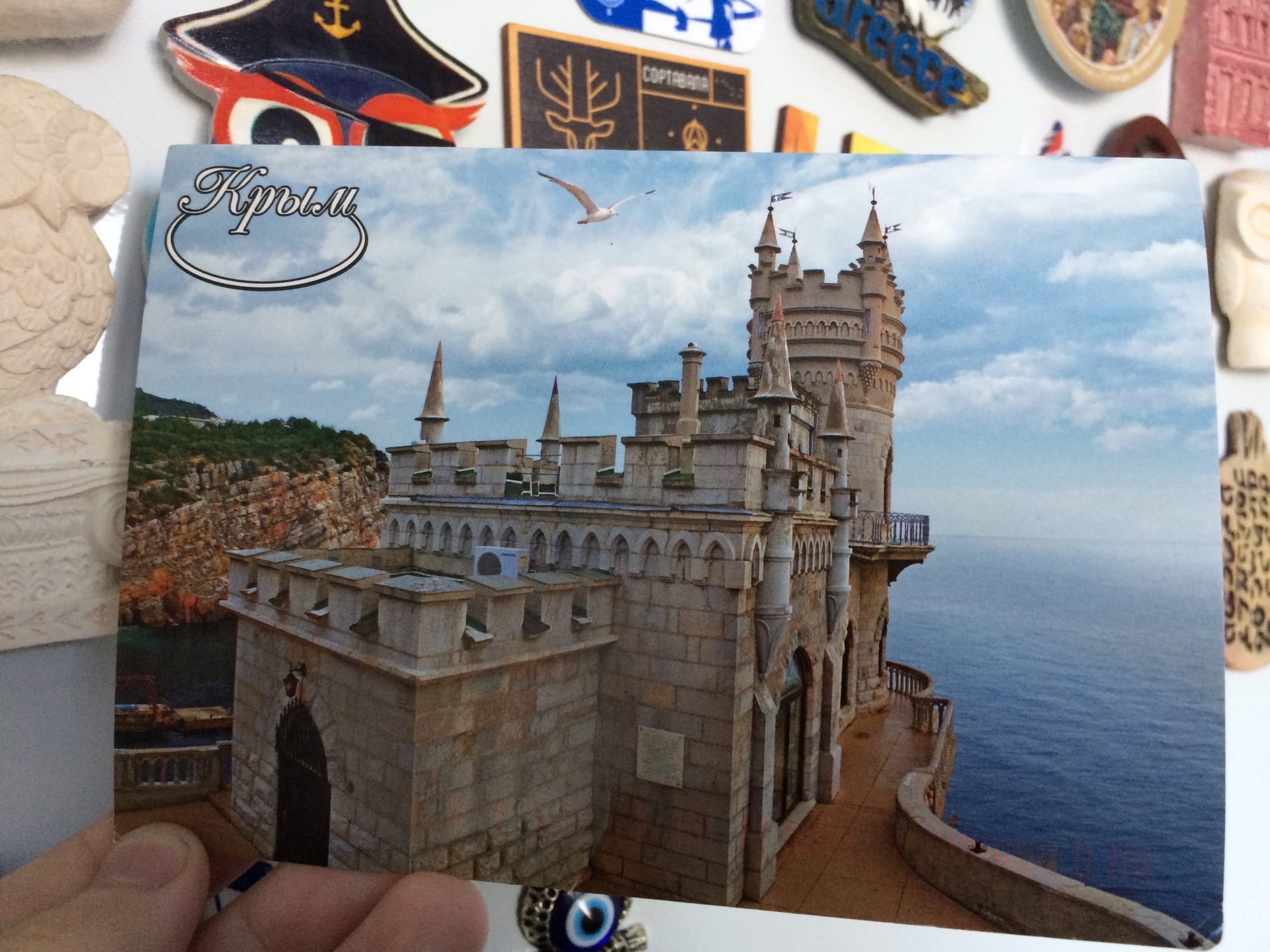I’m Writing to You: What Postcards Can Tell Us

Not so long ago, postcards were a popular way to congratulate someone or send a message. Today the postcard can instead be described as an exotic means of communication, and a rich field for research. This is what encouraged the students and teachers from Fundamental and Applied Linguistics at the Faculty of Humanities to embark on a flash mob project called ‘Send a Postcard to a Linguist’. Deputy Dean Timur Khusyainov of the Faculty of Humanities (Nizhny Novgorod), the curator of this flash mob and an experienced postcrosser, discusses whether postcards can be helpful for researchers and how they relate to digital humanities.
Today postcrossers are reviving written communication with the help of postcards. There is a large international community and many services where you can find recipients from all over the world. You can meet amazing people, make useful acquaintances and find pen pals—it's a lottery that is sure to bring joyful surprises.

Timur Khusyainov
Deputy Dean, Faculty of Humanities (Nizhny Novgorod)
‘I regularly exchange postcards with many people from all over the world—from Ireland to Australia. Most of them are postcard collectors, and I send them examples that they might find interesting, for example, postcards of ships, bridges or lighthouses. I also regularly send postcards to colleagues when I am on a business trip. A postcard is not as banal as a fridge magnet that you bring back from a trip for your friends. Instead, a postcard has a personal story, it conveys the flavour of the country and time. A postcard is a way of capturing the moment, by describing what you see around you, and sharing your emotions in the here and now.’

The ‘Send a Postcard to a Linguist’ Flash Mob
The COVID-19 pandemic had a huge impact on postcrossing. When lockdown started, many people felt like they needed some kind of real communication, and postcards appeared to be a very safe bridge to reality
We recalled this as we were conceiving our ‘Send a Postcard to a Linguist’ flash mob. It was our attempt to return to the real world after all these zoom lectures.
Sending a postcard is a whole adventure: you have to go and buy one, figure out how to send it (for many flash mob participants, it was their first experience of this), drop it in the postbox, and remember to check for mail. These actions all help to bring life back to reality.

Among the participants of the flash mob were those who were already familiar with the concept of postcrossing and also many newcomers who embraced the idea of a New Year's Eve postal flash mob with enthusiasm. There were a total of 51 participants, including alumni and teachers, meaning 51 postcards were sent from different parts of Russia.
I tried to mix up the recipients so that cards were exchanged by students from different courses who did not often see each other in ordinary life. This allowed the students to interact with new people and get to know them
The ‘I'm Writing to You’ Project and the Corpus of Digitized Postcards
Postcards are a rich source of material for research. To make postcards easy to explore, the Systemniy Blok (Системный Блокъ) online media team has launched the ‘I’m Writing to You project, which includes a corpus of digitized postcards. The creators of the project discovered that there are virtually no large digital postcard collections, and so decided to make the ‘I’m Writing to You’ project global: it is not limited by any boundaries, chronological or geographic, and the engaged community is very large.
Systemniy Blok covers interesting practices and new developments in the field of digital humanities.
The corpus only include postcards that were sent by post and bear all the appropriate stamps and addresses, so simple greeting cards delivered personally are not part of the corpus. Over 3,000 postcards have already been collected and digitized as part of the project, and the corpus continues to increase.
Timur Khusyainov is an important member of the project team and is responsible for obtaining new postcards. He says a wide variety of people who share a common passion for postcards are working on the corpus, including collectors, postcrossers, and owners of private postcard museums.
We often call upon collectors of postcards to share their collections for digitization
For example, I contacted Australian collector Terry Dell, who sent us scans of about 500 postcards from his collection. All of these cards have already been uploaded to the corpus.
Museums are also contributing to the corpus: the Jewish Museum in Moscow has sent scans of its collection, a small village museum from Belarus is now digitizing its collection, and there is an agreement with the Russian Museum of Photography in Nizhny Novgorod.
We recently met with the head of the St Petersburg Deltiological Society, which created the Children’s Postcard Museum (a private museum where children organize exhibitions and give guided tours). We scanned some postcards from the museum's collection: a set of postcards addressed to Nadezhda Nikolayevna Gernet—the second woman mathematician in Russia after Sofia Kovalevskaya. We are going to upload them to the corpus and decipher the handwritten texts.
Another important category of people working on the postcard corpus are the volunteers who decipher the handwritten texts on the postcards. These people are not necessarily linguists; they just need to be able to decipher different handwritten messages in their chosen language. This is an invaluable contribution to the corpus, as researchers are then able to work with digitized texts using machine analysis.
In the Nizhny Novgorod campus, HSE students are welcome to join the project, for instance, as part of their internships with the HSE Centre for Digital Humanities.
What Can a Postcard Tell a Researcher
A postcard is a unique thing that can be both a marker of an era and a private biography, based on an outside view. The study of postcards can be a source of information for historians, economists and linguists.
Linguists can study what words made up the vocabulary of people from a particular group, time or country. Another interesting aspect is the spelling and punctuation errors in the text.
For economists, postcards can be a useful source of information too: the stamps can be used to analyze the cost of postal services, while the texts are sometimes used by people to share information on the prices of certain goods and services, the characteristics of the circulation of goods and money, and so on.
Postcards are of particular value to historians, as they can be used to study people's everyday private lives. People write about a huge variety of things in postcards
Timur Khusyainov says he recently studied a postcard from the 1970s with a long message, which contained not only holiday greetings, but also lots of information about the sender's life: she talked about her work, how she had received a dacha, and how dissatisfied she was with her daughter’s decision to continue education at school until the 10th grade instead of enrolling in a vocational school. The sender lamented that this left her daughter with no education at all, even though she was one of the top ten students in her class. In the same card, the sender said that once again, because of the shortage of food, it was almost impossible to buy sausage.
This postcard is part of a collection received by one person, a woman who lived in Nizhny Tagil, from different senders. She received postcards from different parts of the Soviet Union: Kiev, Chelyabinsk, cities in Central Russia. Each postcard is an entirely new story.
This collection also includes invitations to corporate events from the company where the woman worked, cards from family friends where we learn her mother's name, and cards with expressions of condolence on her loss. The postcards can therefore be used to retrace one person's story, as told by his or her pen pals. One can see a person through the eyes of other people, which is often a very interesting angle of perception.
All this can only be inferred from the text, and yet the postcard also has stamps that can be used to trace the routes and the duration of delivery, as well as the picture on the front. Postcard illustrations are a vast subject, worthy of attention from a wide range of researchers’—from cultural historians and designers to historians and political scientists.
Digital Humanities and Where to Find Them
Digital humanities involve the application of digital tools to the humanities. For example, previously the analysis of postcards was approached individually. Now it is possible to use a database of digitized postcards and make data slices by analyzing a number of them according to the parameter of interest.
Digital humanities proves that the skills developed by classical humanities scholars are quite compatible with digitalization and are in great demand for the development and technical support of digital tools
Modern technology helps us in our research. The ‘I’m Writing to You’ project uses neural networks to analyze postcard illustrations, highlighting the objects depicted: people, birds, ships, etc. Other tasks are yet more difficult to automate, such as transcribing handwritten text. This is where people's experience comes to the fore.
Timur Khusyainov
Deputy Dean, Faculty of Humanities (Nizhny Novgorod)
See also:
‘The HSE Faculty of Humanities Affirms Its Status as a Leading Centre in Russia and Abroad’
On December 1, the HSE Faculty of Humanities celebrated its 10th anniversary. In honour of the occasion, HSE leaders, representatives of other universities, and members of the Russian Academy of Sciences (RAS) gathered at the university’s Cultural Centre to congratulate the faculty.
Digitization of Manuscripts: Months of Searching Can Turn into Hours and Even Minutes
HSE staff members are participating in the ‘Russian Cultural Heritage: Intellectual Analysis and Thematic Modeling of the Corpus of Handwritten Texts’ project. This is aimed at developing a methodology for the automated analysis of manuscripts, eliminating the need for manual processing. HSE News Service spoke to Ekaterina Boltunova, project manager, Professor, Head of the Laboratory 'Russia’s Regions in Historical Perspective' at HSE Faculty of Humanities.
Poletaev Readings Consider New Turns In and Away from Theory in the Humanities
The Poletaev Readings, dedicated to the memory of Andrey Poletaev, one of the founders of the Poletaev Institute for Theoretical and Historical Studies in the Humanities (Russian acronym — IGITI), is a major annual event of the Institute. The event was set to mark its 10th anniversary in 2020, but due to the pandemic, the anniversary forum has been postponed to 2021. In its place, the organizers have arranged the Poletaev Readings 9¾, which were held online. HSE News Service spoke with the event organizer and some of the participants.
What Does the Lens of Gender Reveal?
In June, faculty members from HSE’s School of Cultural Studies, the School of Philosophy, and the Poletayev Institute for Theoretical and Historical Studies in the Humanities met with colleagues from the University of Pittsburgh (USA) and a Russian art historian to participate in a round table on the importance of gender studies in the humanities. The researchers discussed questions such as what historians, philosophers, and historians can achieve when approaching their fields of study from the standpoint of gender studies, and what the state of gender studies is in contemporary Russia and abroad.
‘In Russian the Word “Justice” Is Not Associated with the Word “War”’
Researchers from the Higher School of Economics have begun working with the research centre of the French Saint-Cyr Military Academy (École spéciale militaire de Saint-Cyr) on the moral and political issues of modern-day warfare. One part of this partnership was a conference devoted to just war theory and problems with combating terrorism. Below, Faculty of Humanities Professor Boris Kashnikov, also a participant of the conference, tells Scholar Viewpoint whether there can be justice in war and how scholars of the humanities are able to work together with the military.
Vera Pozzi – A Year of Russian Intellectual Culture
Ever since she completed her dissertation on ‘The role of the Ecclesiastical Academies in Reception of Kantianism in the Russian Empire’ in 2015, Vera Pozzi, a native of the northern Italian city of Lecco, has sought an opportunity to return to Russia to take her research to the next level. When she saw HSE’s call for international fellowships, she was drawn by the internationally oriented nature of the application and the opportunity to apply for a field like ‘History of Russian Intellectual Culture’, which aligns perfectly with her current research interests. In September, Vera will be enrolled in the Faculty of Humanities, School of Philosophy for one year under a post-doc fellowship.
Studying Medicine in the Humanities
At the most recent Andrey Poletayev Memorial Readings held by the Poletayev Institute for Theoretical and Historical Studies in the Humanities (IGITI), participants discussed the relationship between the natural sciences and the social sciences. HSE Professor Elena Vishlenkova tells us why scholars in the humanities are interested in the natural sciences and what contribution they can make to this field.
Berlin Scholar to Return to HSE for Series of Lectures on Literature
From September 25 till October 5 2016, Professor Dr Joachim Küpper of the Free University of Berlin will deliver a series of lectures on ‘Humanities and Conceptualization of Time at HSE Moscow. Joachim Küpper’s travel to HSE follows the university’s decision this past summer to join a key project run by the Dahlem Humanities Center at the Free University of Berlin called ‘The Thematic Network Principles of Cultural Dynamics’.
Russian and Italian Intellectuals Speak a Common Language
In late May Moscow hosted a Russian-Italian research conference marking the anniversary of the birth of Italian philosopher Benedetto Croce. The conference entitled 'The Legacy of Benedetto Croce in the 21st Century' was organized by and held at the HSE's Humanities Faculty in conjunction with the Italian Cultural Institute in Moscow.
HSE Expanding International Cooperation in the Humanities
In 2016, the Higher School of Economics will be the first Russian university to become an associate member of a large project being carried out by the Freie Universität Berlin’s Dahlem Humanities Center. The project, entitled the Thematic Network Principles of Cultural Dynamics, aims to strengthen international cooperation in humanities research. Its objective is to study the factors that affect the cultural processes in the history of humanity’s development.


